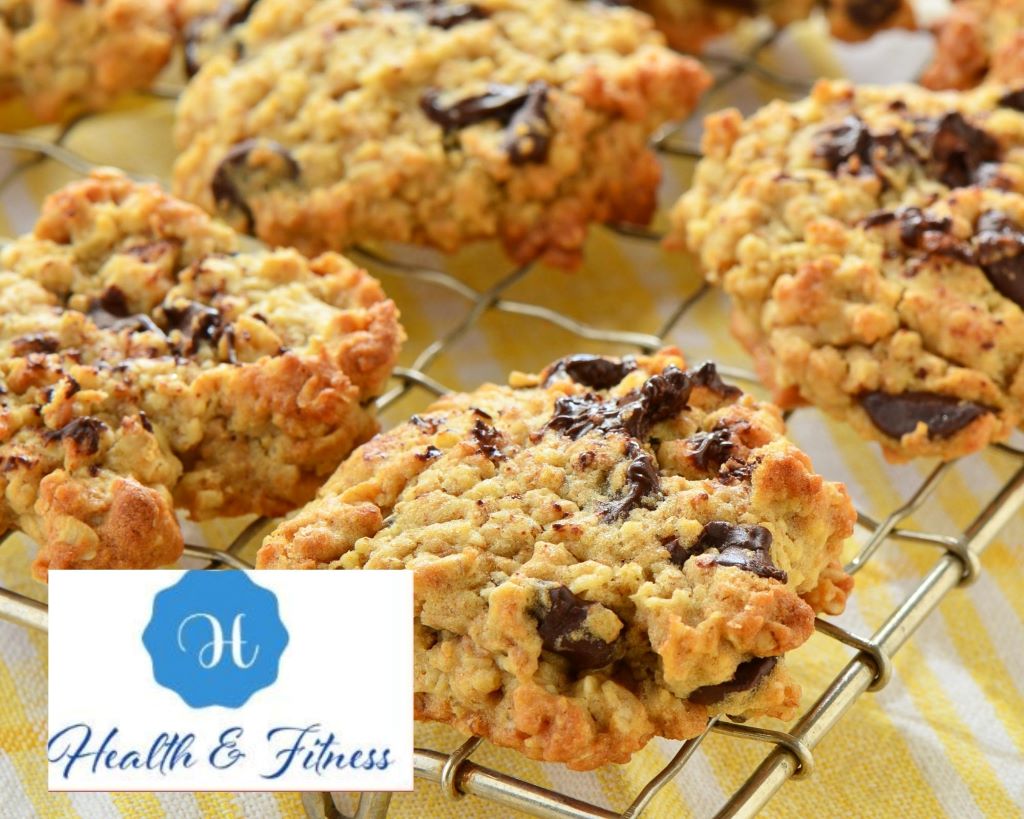Learn the key habits for a healthy lifestyle, including diet, hydration, exercise, sleep, and mental well-being. Start living healthier today with these essential tips!
The widespread fallacy is that being in shape can be accomplished through proper nutrition and physical activity. Developing a healthy lifestyle and keeping it going is about more than just those two aspects; it also requires maintaining a cheerful attitude, solid mental health, and a healthy self-image.
A healthy lifestyle isn’t just diet and exercise. So what is a healthy lifestyle?
Even though there is a lot of information available on how to lead a healthier lifestyle, the following are some of the most important things to keep in mind:
Best healthy lifestyle tips
1-Increase the amount of healthy fruit and vegetables you eat.

Vitamins and minerals, which are critical to maintaining health, can be found in every type of fruit and vegetable. If we want to keep our health in condition, we should strive to achieve a daily fruit and vegetable consumption goal of five servings.
2- Drink extra water for your healthy lifestyle.

Most of us do not get the recommended amount of water daily, even though our bodies must function correctly. Water is a vital component of our biological activities, including eliminating waste and distributing nutrients and oxygen throughout our systems. Urination, defecation, perspiration, and breathing all cause water to be evacuated from the body daily; therefore, we must regularly replace the amount of water stored in our bodies. The amount of water that we require each day is determined by several circumstances. But adults need between two and three liters of water daily. The colour of your urine, which should be white or a very light yellow, is an excellent indicator of whether you are getting enough water in your diet.
3-Exercise daily to become a healthy lifestyle.

Not just twice per week but daily. Move your body every day for at least thirty minutes in some fashion. You will reduce the likelihood of developing a disease, increase the density of your bones, and possibly even lengthen your life.
4- for a healthy lifestyle, get enough sleep.

You have a greater propensity to overeat when you don’t get enough sleep. Typically, only junk food is allowed.
5- Eat less food that has been processed as a lifestyle.

Consuming foods that have been processed is not healthy. Processed foods lose most nutritional value, and the added preservatives harm human health. These foods contain a significant amount of salt, which plays a role in the progression of high blood pressure and cardiovascular disease. An item’s level of processing can be inferred from the number of ingredients listed on the packaging.
6- Consume colours of the rainbow as a healthy lifestyle

Choose meals with vibrant colors when shopping in the produce section. These make for a more visually pleasing plate and a high antioxidant content (antioxidants neutralize the free radicals in our bodies that are detrimental to our cells). The following are some examples to keep an eye out for:
- White (Bananas, Mushrooms)
- Yellow (Pineapples, Mangoes)
- Orange (Oranges, Papayas)
- Red (Apples, Strawberries, Tomatoes, Watermelons) (Apples, Strawberries, Tomatoes, Watermelons)
- Green (Guavas, Avocados, Cucumbers, Lettuce, Celery)
- Purple/Blue (Blackberries, Eggplants, Prunes)
7- Avoid trigger foods for your health

These are the kinds of dishes that leave you wanting more after just one bite. Candies, chocolate, potato chips, cookies, or anything else with necessary amounts of processed sugar, salt, or fat. Flour is a typical example of a food that can set off an allergic reaction in some people. However, everyone’s trigger foods are unique to them. When someone is sad, they are more likely to overeat; thus, if you maintain a positive frame of mind, you can avoid developing an unhealthy dependence on food to feel joyful.
8- Don’t rush through your meal as a lifestyle.
Your brain, not your stomach, is the organ that determines whether you are hungry or full.
If you take your time while eating and eat more slowly, you allow your brain to transmit the “full” message to your stomach at the appropriate time, enabling you to digest the food you have consumed completely.
If you want to know when it’s time to quit eating, don’t look at your plate to see if it’s empty.
9- Attempt to switch to lower calories and fatty foods.

Every grocery store should stock many options that are low in fat or do not contain any fat. Throughout some time, attempts to replace the pantry essentials with full-fat versions with equivalents that have less fat.
10 Always have some nutritious snacks on hand for your lifestyle

Consuming several smaller meals throughout the day is beneficial to your metabolism, but the foods you choose to consume are of the utmost importance. Look for foods like fruit, salad, or freshly squeezed juices that are not from concentrate when looking for something to munch on throughout the day. These are healthy and won’t cause a sugar high or low in your system.
11- Stay away from the negative thoughts that you have.
Negativity from you, yourself, is not something you need either. Let go of any negative thoughts that you have within you.
12- Start getting your healthy meals ready.

When you cook your meals, you have complete control over the ingredients that go into them.
Because of this, it will be much simpler for you to select the activities and foods that are best for your body.
13- Get frequent checkups for your health

Some diseases don’t manifest symptoms until it’s too late to treat them. Get your blood regularly tested to check your blood sugar, vitamins, and minerals at the intervals your doctor recommends. You can immediately adjust to the situation if the test results are not ideal. If your health is terrific, that is fantastic news, and you may have complete confidence in them.
14- Stop smoking to be healthy

Smoking is harmful, period. It is in your best interest to give up smoking for your health. And the health of those around you, including yourself, your family, and your friends. If you’ve never smoked before, resist the urge to start.
Conclusion
I have put these tips into practice, and my way of life and the results have dramatically improved. I have also recommended that my loved ones and friends adopt these strategies and make this a routine or habit to be healthier in their lifestyle.
FAQs about healthy lifestyle
Q: What is a healthy lifestyle?
A: A healthy lifestyle is a way of living that promotes physical, mental, and emotional well-being. It involves making positive choices and adopting habits that contribute to overall health and quality of life. This includes maintaining a balanced diet, regular exercise, managing stress, getting enough sleep, staying hydrated, and avoiding harmful habits like smoking and excessive alcohol consumption. A healthy lifestyle supports longevity and reduces the risk of chronic diseases.
Q: What are 10 healthy lifestyles?
A: Here are 10 healthy lifestyle choices you can consider:
- Balanced Diet: Eat a variety of nutritious foods, including fruits, vegetables, whole grains, lean proteins, and healthy fats.
- Regular Exercise: Aim for at least 30 minutes of physical activity most days, such as walking, jogging, or dancing.
- Adequate Sleep: Get 7-9 hours of quality sleep each night to recharge your body and mind.
- Stress Management: Practice relaxation techniques like meditation, yoga, or deep breathing to reduce stress.
- Hydration: Drink plenty of water to support bodily functions and stay well-hydrated.
- Avoid Smoking: Refrain from smoking, as it is detrimental to your health.
- Limit Alcohol: If you consume alcohol, do so in moderation.
- Regular Health Check-ups: Schedule routine check-ups to detect health issues early.
- Mental Well-being: Prioritize mental health through self-care and seeking support when needed.
- Positive Social Connections: Build and maintain relationships with friends and family for emotional well-being.
Q: Why is a healthy lifestyle important?
A: A healthy lifestyle is crucial for several reasons:
- Disease Prevention: It reduces the risk of chronic diseases such as heart disease, diabetes, and certain cancers.
- Enhanced Quality of Life: It promotes overall well-being and increases energy levels.
- Weight Management: Helps maintain a healthy weight, reducing the risk of obesity.
- Mental Health: Supports emotional well-being and reduces the risk of depression and anxiety.
- Longevity: Increases the chances of a longer, healthier life.
- Improved Immune Function: Boosts the body’s ability to fight off illnesses.
- Better Sleep: Supports restful sleep patterns.
- Increased Productivity: Enhances physical and cognitive performance.
- Stronger Bones and muscles: Contributes to better musculoskeletal health.
- Positive Social Interactions: Fosters relationships and social connections, reducing feelings of loneliness.
Q: What are the 10 benefits of a healthy lifestyle?
A: Adopting a healthy lifestyle can bring numerous benefits, including:
- Longevity: Increases your chances of living a longer and healthier life.
- Disease Prevention: Lowers the risk of chronic conditions like heart disease, diabetes, and certain cancers.
- Weight Management: Helps you achieve and maintain a healthy weight.
- Improved Mental Health: Reduces the risk of depression and anxiety, promoting emotional well-being.
- Enhanced Energy: Boosts your energy levels and vitality.
- Better Sleep: Supports restful and restorative sleep patterns.
- Stress Reduction: Equips you with tools to manage and reduce stress.
- Stronger Immune System: Improves the body’s ability to fight off illnesses.
- Increased Productivity: Enhances physical and cognitive performance.
- Quality of Life: Overall, it leads to a higher quality of life, with better physical and mental health, and increased happiness and satisfaction.



